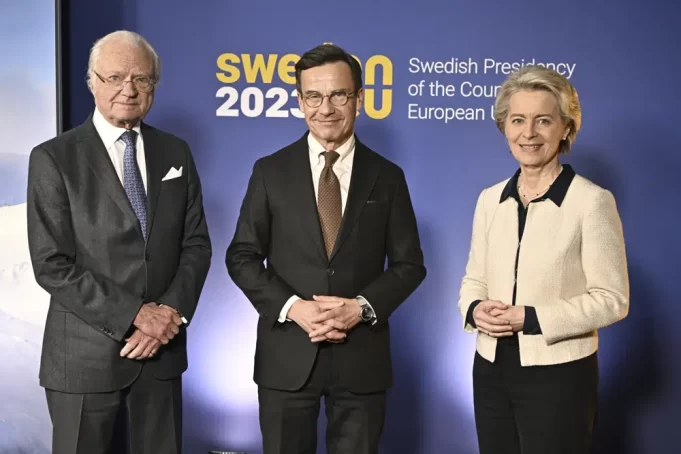Sweden’s KIRUNA: There are growing concerns that the continent’s heavyweights may benefit at the expense of the smaller member states. As the European Union considers pumping more subsidies into its industry. To counteract American efforts to boost its green technologies sector.
Such concerns are well-founded, if the EU’s approval of subsidies. To offset the effects of Russia’s conflict in Ukraine is any indication.
Sweden, which is currently in charge of the EU presidency, issued a warning about the need to maintain balance. So that Germany and France can’t coerce smaller member states into giving their national powerhouses billions in subsidies that others just don’t have.
It would seriously jeopardize the EU’s cherished “single market. ” Which allows all 27 countries’ sectors to compete as fairly as possible on an equal level. Whether they come from prosperous Germany or less developed Bulgaria.
According to Swedish Industry Minister Ebba Busch, the EU’s response to the U.S. subsidies included in the $369 billion Inflation Reduction Act must prevent “a competition on who can deliver the biggest state aid.” “We would face a situation where we would distort the internal market’s competition and disadvantage. In particular, the union’s smallest states.”
When their leaders gather for a two-day summit in Brussels on February 9–10. The EU member states are already preparing for just such conflict.
The majority of the public discussion will undoubtedly revolve around how to deal with Washington. Without starting a transatlantic trade war. But member states will also be motivate by the desire to advance their own national interests.
The European Commission President Ursula von der Leyen has suggested the idea of a European sovereignty fund to promote the ecological transition of the bloc’s economy. Member states can utilize subsidies to oppose Washington and maintain green sectors in Europe.
Making any attempt more balanced than the 540 billion euros in state aid. That has already been officially approve. To help member states deal with the effects of Russia’s war in Ukraine would be the key.
Nearly half of the state aid that was accepted, or 49.33%, was related to Germany, and nearly a third, or 29.92%, was France’s request. In contrast, southern countries like Spain (1.86%) and Italy (4.73%) invested significantly less in their economies. Grants, loans, and financial guarantees are all examples of state assistance.
The EU has spent decades trying to wean member states off of giving outsized subsidies to outmoded industries. Which ultimately prevents them from planning for the future.
When the economies were impacted by the global coronavirus outbreak in 2020. And the effects of the war in Ukraine last year, EU officials made a significant alteration to the system.















